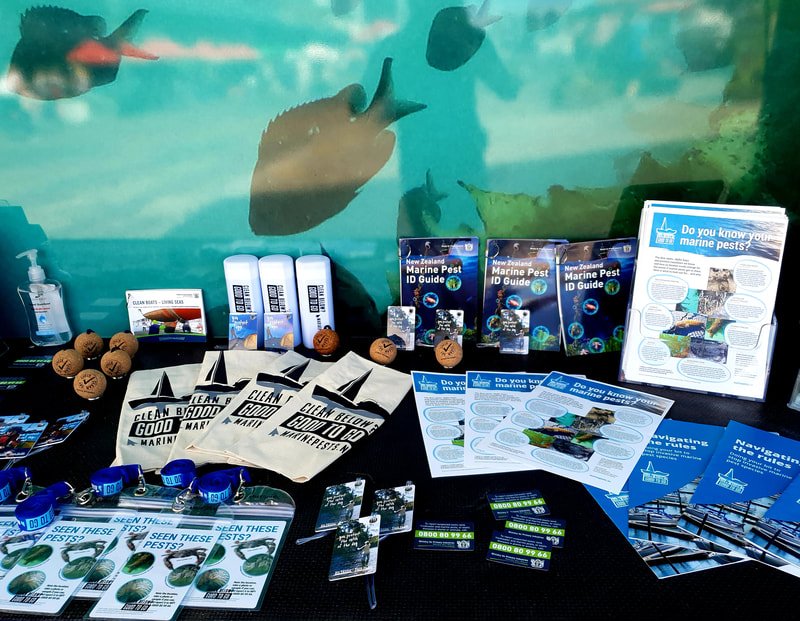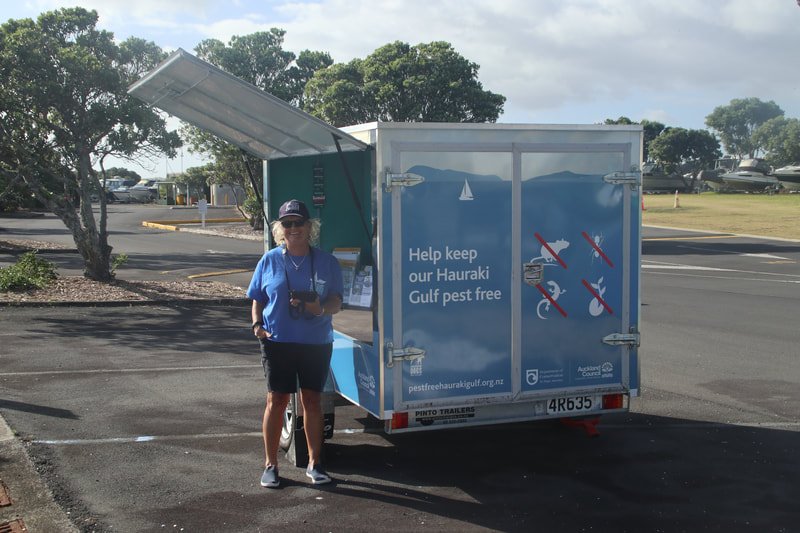New report shows boat owners are picking up what we're putting out there
How much do Auckland boat owners know about marine biosecurity? And does this translate to improvements in practice? Auckland Council has now released the results of its second annual boat owner survey. The good news is it shows significant improvement in terms of understanding and uptake of marine biosecurty principles, which translates directly to better protection for our coastal environments.
Over summer, nine well trained and friendly marine outreach ambassadors were stationed at eight marinas and one boat ramp in Auckland. A ‘biosecurity trailer’ also toured the facilities.
While the program is primarily about education, it was also an opportunity for Auckland Council to learn more about boat users’ and public knowledge of marine biosecurity, and the behaviours they engage in.
1,889 individuals were surveyed in total. Some of the survey highlights reported are:
83% of respondents said that they are aware of marine biosecurity. At OBC this was 97% with similar rates at Half Moon Bay, Westhaven and Gulf Harbour.
53% felt they had moderate knowledge and 12% felt they had expert knowledge. This was significantly improved on the year prior when 34% felt they had moderate knowledge. Moored boat owners had particularly high knowledge.
47% of respondents said their marinas kept them informed and contributed to their knowledge. Others attributed their knowledge to theboat show, signage, friends, outreach staff and the internet.
Only a small percentage of boat owners clean their boats less than once a year. 46% clean annually, and 29% every six months. Most use haulout facilities. Cost was seen as the biggest barrier to boat cleaning, with around 29% suggesting it was a challenge for them.
What does this mean for marine biosecurity? Senior Marine Biosecurity Advisor Samantha Happy explains:
“Education is our first defence against marine pests. This increase in knowledge means that more boat owners are aware their boats can potentially carry unwanted hitch hikers with them on their travels. This helps protect our islands and special bays, not only within Auckland but further afield too. It’s an indication that the programmes are working.”
Photos supplied by Auckland Council



